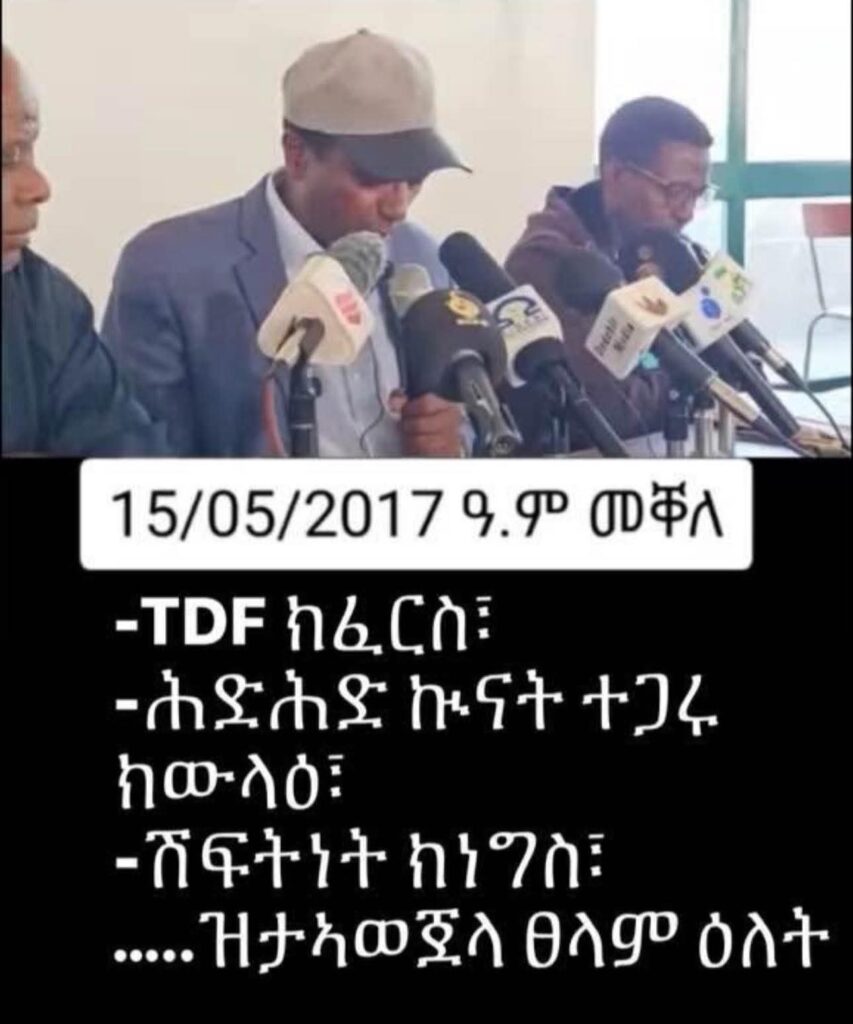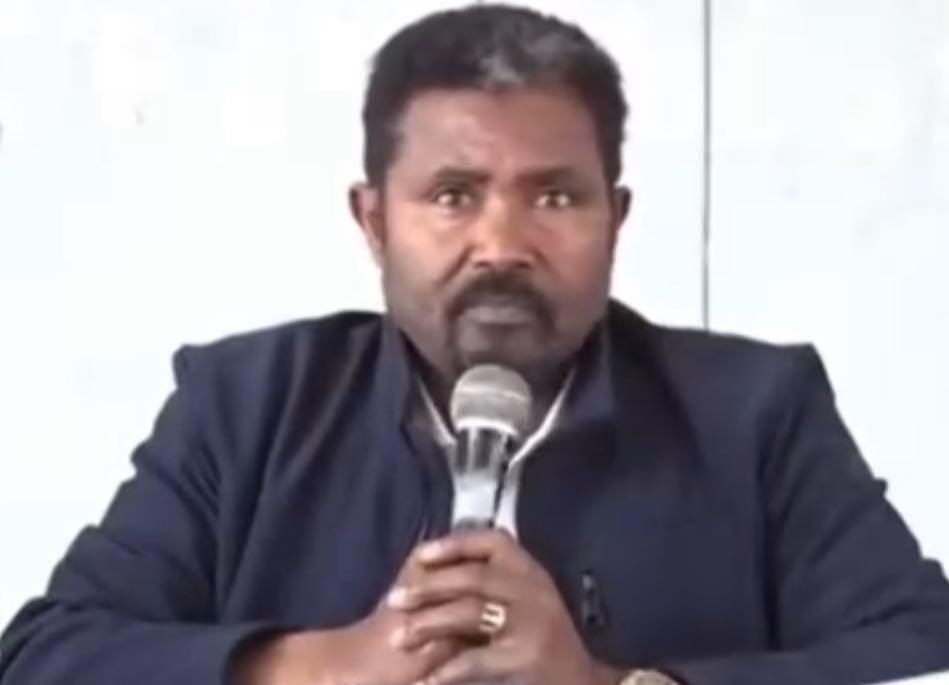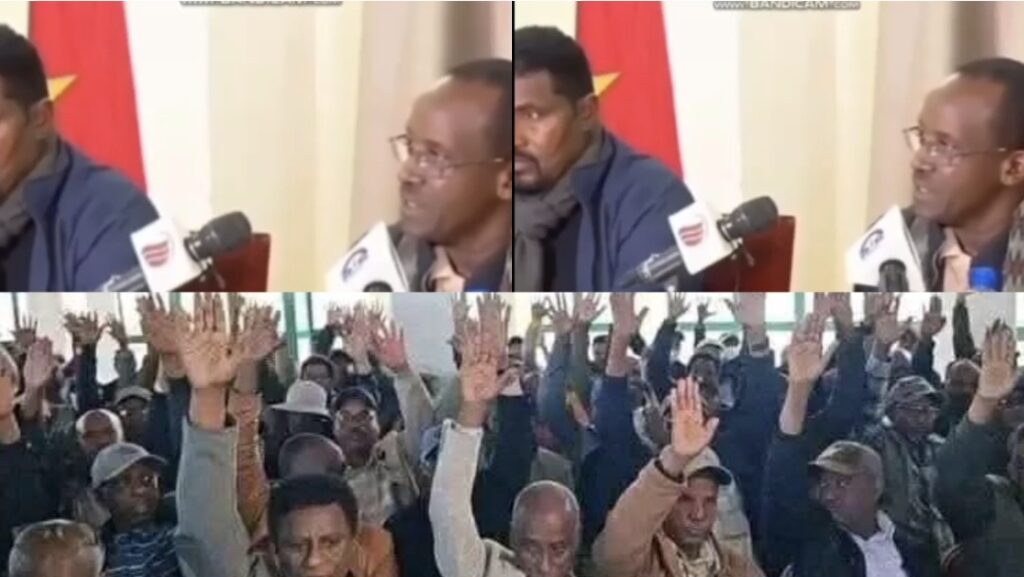Mekelle፡Telaviv, Nairobi, Pretoria, London, (Tigray Herald).
The Hands That Opened the Pandora’s Box: TPLF Generals and the Unraveling of Tigray’s Post-War Gamble.
By Tesema Nadew
On 15 January 2017 (E.C.),(Aka January 23, 2025) a hall full of veteran fighters and seasoned generals raised their hands in near-total unanimity. The decision they made that day captured in a striking image now circulating widely was more than symbolic. For many, it marked the moment when the ruling elite of the Tigray People’s Liberation Front (TPLF) officially distanced themselves from the popular aspirations of the Tigrayan people.
In a bright room somewhere in Mekele city, a sea of raised hands most belonging to aging generals, veteran fighters, and loyal political cadres marks a moment that will be etched in the troubled timeline of modern Tigray. Captured in a single frame, this vote this show of unity was meant to symbolize resolve. Instead, it may be remembered as the spark that ignited another chapter of chaos.
These are the hands of TPLF-affiliated military and political elites. The very same hands that once orchestrated complex battlefield maneuvers during Ethiopia’s civil war. The same hands that negotiated with Eritrea in the 1990s, administered the EPRDF’s federal architecture, and more recently, signed away the fate of millions through a peace agreement whose legitimacy is still fiercely contested. But on this day, they were raised to support a decision one that now appears to have opened the proverbial Pandora’s Box.
A Vote with Consequences
Sources close to Mekelle suggest this hand-raising ceremony was part of a closed-door decision to sideline dissenting factions within Tigray, perhaps to endorse the controversial Pretoria Agreement, or greenlight a crackdown on emerging opposition such as the Tigray Peace Forces (TPF). Whatever the intent, the image has already become a symbol of political tone-deafness in a region that is yet to heal.
“History will remember this moment not for what it promised, but for what it unleashed,” says a former TDF commander now jojned to Tigray peace force(TPF). “They didn’t vote for peace. They voted for political survival. And that’s a dangerous game when your people are exhausted by war.”

Betrayal or Realpolitik?
Supporters of the leadership argue the generals are acting in the best interest of Tigray to ensure stability, avoid renewed conflict, and gradually reintegrate into Ethiopia’s federal structure. But critics say the TPLF old guard has betrayed the sacrifices made by ordinary Tigrayans during the war. Survivors of the conflict see this vote as a capitulation a surrender dressed as pragmatism.
“These are not the hands of liberation,” wrote one activist on X (formerly Twitter). “These are the hands of betrayal.”
Indeed, the consequences are already unfolding. Protests have quietly reignited in parts of central and southern Tigray. Dissidents are resurfacing, and whispers of new armed resistance are spreading across the northern highlands. The TPF, a new faction composed of sidelined fighters and former regional administrators, claims the TPLF has hijacked the peace process in collaboration with Addis Ababa and international mediators.
The Gin Is Out of the Bottle
The phrase resonates deeply: The gin is out of the bottle. And it’s not just about internal Tigrayan politics.

This image, this vote, has exposed the frailty of the post-war consensus in Ethiopia. It has reignited calls for accountability, transparency, and inclusive leadership not just in Tigray, but across other marginalized regions. It has also forced observers to question the nature of peace itself in post-conflict Ethiopia: Is it the absence of war, or the presence of justice?
By raising their hands in unanimity, the TPLF generals may have believed they were asserting control. Instead, they have lost the narrative.
A Closing Thought
This photo is more than an image. It is a mirror reflecting a leadership still trapped in its own echo chamber, disconnected from the trauma and aspirations of its people. These raised hands may one day find themselves lifted again not in victory, but in defense, as a new generation demands accountability for the path chosen that day.

The future of Tigray will not be written by a show of hands. It will be forged by the voices of those still silenced, the displaced still yearning to return, and the survivors still demanding justice.
Tesema Nadew is a political analyst and journalist focusing on the Horn of Africa, security, and governance. Based in Nairobi, he writes for Tigray Herald and other international publications.




